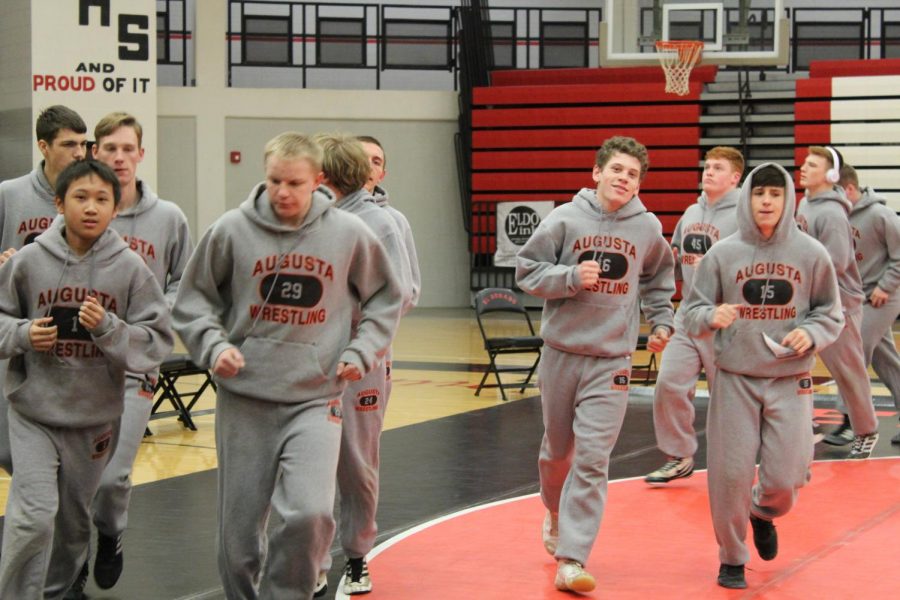Wrestling is an intense and demanding sport. It requires strenuous mental and physical effort from its participants.
Weight plays a major role in keeping the game safe and evenly matched. Wrestlers may compete in 14 weight classes, each with a maximum weight.
If a wrestler does not meet the weight requirement, then he cannot compete. Wrestlers cut weight before competitions if needed.
Cutting weight consists of eating nothing or close to it for however long before the athlete competes. Some wrestlers starve themselves for hours or even a day before competitions in order to make weight.
High school coaches try to teach positive ways of weight loss.
“It’s more about weight management and eating healthy than it is about cutting weight. If they will just eat healthy and exercise then a lot of them lose a little weight on their own,” head wrestling coach Brandon Terry said.
Cutting weight is effective, although it is unsafe. It would be a more responsible solution to manage weight before the season starts so that wrestlers do not have to lose as much weight in such a short time.
“Research has shown that excessive weight loss does not help a competitor, but in many cases will actually reduce his efficiency,” according to Section II 2A KSHSAA Wrestling Manual.
This method of weight loss resembles an eating disorder and raises the question of its safety.
As stated by the National Eating Disorders Association website, many conditions can arise from not consuming enough food.
A lack of needed calories results in the body breaking down its own tissue for fuel. Muscles are some of the first tissues broken down, which seems counterproductive for athletes.
The brain can require up to one-fifth of the body’s caloric intake. The brain needs this energy in order to send electrical signals through neurons.
Many hormones need fats and cholesterol from food in order for the body to maintain proper levels. Estrogen and testosterone are two hormones that are negatively affected by a lack of fats and cholesterol. When not enough of these hormones are produced in the body, increased bone loss can occur. This bone loss is known as osteoporosis or osteopenia and can lead to fractures and breaks for athletes.
If not enough iron is present in the body, anemia develops. Symptoms of anemia include fatigue and weakness; the opposite of how a wrestler should feel before a competition.
Cutting weight is efficient; however, it is not worth the multitude of problems it can cause.
My recommendation is that wrestlers manage their weight before the season starts.
It would allow wrestlers to lose a few pounds in a week rather than a day, which would be much less harmful to the body.
The National Eating Disorders Association website presents these health consequences and many more, however; cutting weight for sports is not one of the things mentioned.
I feel as if this issue, and its risks, should be publicized more in order to convince wresters to reconsider how they manage their weight.
If athletes start their diets before the season, then they can plan to be within a certain weight class before the first competition. There would be no more skipping meals and there would not be as much stress about weighing in.









